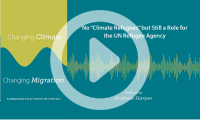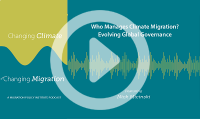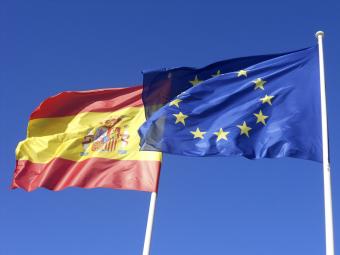International Organizations
Recent Activity

Marking the launch of the Beyond Territorial Asylum: Making Protection Work in a Bordered World initiative, this event examines how the accessibility of asylum and protection globally has changed since the EU-Turkey deal, similar policies deployed by countries of asylum, the impacts of these policies, and what can be done t

Technically, people forced to move because of climate disasters are not considered “refugees.” But the UN High Commissioner for Refugees still takes climate issues into account, and since 2020 Andrew Harper has been its special advisor on climate action.

This report release event examines migration management in Mexico and Central America, and the growing government attention to migration functions, enhanced immigration enforcement, increased investments in asylum systems and existing protection frameworks, as well as labor migration policies.

Marking the release of an IOM-MPI report, this two-panel discussion, features introductory remarks by IOM Director General António Vitorino and examines how the pandemic has reshaped border management and human mobility in 2020 and what the lasting impacts may be throughout 2021 and beyond.

Climate change and international migration both are global issues with aspects that countries try to manage through treaties, pacts, and other types of agreements. But most of the global governance frameworks that exist for climate-induced migration require only voluntary commitments by states.
Pages
Recent Activity
For this episode of Changing Climate, Changing Migration, we speak with Joan Rosenhauer, the executive director of Jesuit Refugee Service/USA, about how natural disasters and other environmental harms affect her organization’s work and its faith-based mission.














